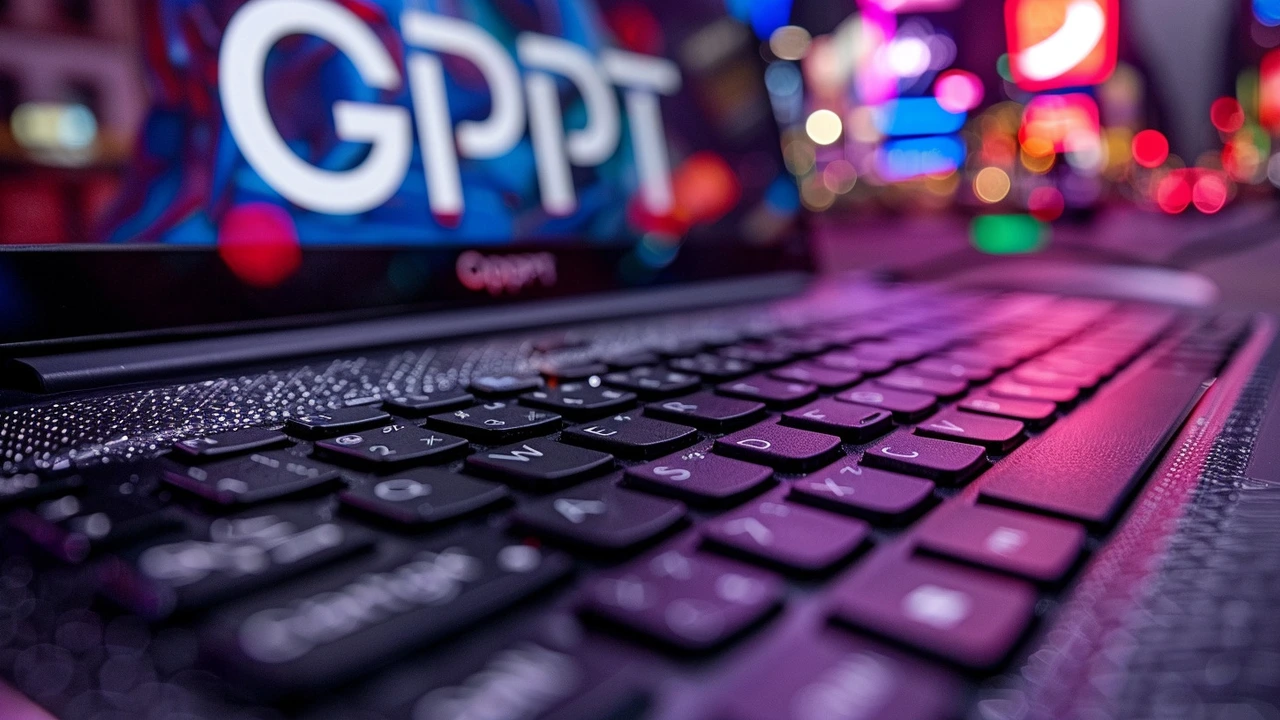 Jun, 4 2024
Jun, 4 2024
ChatGPT Faces Serious Operational Hurdles with Repeated Outages
ChatGPT, a leading AI chatbot developed by OpenAI, recently faced significant operational disruptions, creating waves of frustration among its vast user base. The morning of June 4th started unexpectedly for millions globally. Reports of service outages began to trickle in as early as 2:15 PM GMT, when numerous users worldwide found themselves unable to access the chatbot's services. The first signs of trouble were acknowledged by OpenAI at 12:21 AM PDT, kicking off a lengthy and challenging restoration process.
The incident crippled all ChatGPT services, whether users were on a free plan or a premium subscription. This sudden outage was no isolated event; it came on the heels of another significant disruption just a month prior, linked to the Bing API malfunction. Over 100 million weekly users were frantically posting on various social media platforms, notably X and Threads, seeking answers and airing their grievances. Loyal users of the service were dismayed as their reliance on the AI for personal, academic, and professional tasks came to a sudden halt.
Timeline of Events: A Series of Unfortunate Outages
The timeline of events began in the early hours when OpenAI first acknowledged the problem at 12:21 AM PDT. Engineers and technicians sprang into action, and significant efforts were underway to diagnose and resolve the issue. Nearly four hours later, by 4:19 AM PDT, OpenAI managed to restore service temporarily, only to face another setback shortly after. At 7:33 AM PT, ChatGPT once again went down, prompting users to brace for further delays and disruptions.
OpenAI's response was swift but not instantaneous. By 10:17 AM PDT, an update was posted confirming that all systems had returned to operational status. Nevertheless, the intermittent nature of these outages left many wondering about the platform’s stability. This incident was part of a broader pattern, as some users recalled the last significant partial outage from the previous month due to the Bing API issue, amplifying concerns about recurring technical failures.

Impact on Global User Base: An Unwelcome Interruption
The global user base of ChatGPT, which includes students, professionals, developers, and casual users, all faced a significant interruption in their daily activities. The chatbot, known for its versatility and responsiveness, had become an integral part of many workflows. The outages meant project delays, halted communications, and an overall disturbance to the established routines of countless individuals.
Many users took to platforms like X (formerly Twitter) and Threads to express their frustrations and seek solidarity with other affected parties. Hashtags related to the ChatGPT outage began trending, showcasing the widespread dependency on the AI service. While OpenAI reassured users that all systems were operational by mid-morning, the recovery process highlighted the underlying vulnerabilities associated with relying heavily on AI systems.
OpenAI's Challenges: Maintaining Reliability Amid Growing Pains
The recent outages reflect growing pains for OpenAI as it navigates the complexities of scaling a massively popular service. Balancing the increasing demand with robust, reliable performance has proven to be a challenging task. The rapid growth in user numbers, surging past 100 million weekly, adds pressure on the infrastructure, necessitating upgrades and constant monitoring to prevent breakdowns.
OpenAI's transparency in communicating outage details and resolution timelines plays a crucial role in maintaining user trust. Despite frustrations, users largely appreciate timely updates and the technical teams' diligent efforts to restore functionality quickly. However, recurring outages underscore the need for a more resilient framework to support ChatGPT's operations, ensuring users have uninterrupted access to the AI's capabilities.

Moving Forward: Strategies for Stability and User Assurance
Looking ahead, OpenAI faces the imperative task of enhancing its systems to avoid future disruptions. Regular infrastructure upgrades, better load management, and increased redundancy may be among the steps needed to bolster reliability. Moreover, transparent communication channels and active user engagement during such incidents can help mitigate adverse reactions and reinforce trust.
OpenAI's acknowledgment of the latest outage and the rapid response demonstrate a commitment to addressing technical issues promptly. However, the broader challenge lies in foreseeing potential pitfalls and preemptively mitigating them. Ensuring that ChatGPT continues to be a reliable tool for its diverse and global user base will require ongoing investment in technology and support systems.
Concluding Thoughts: The Path to a Resilient ChatGPT
The recent outages underscore the critical need for OpenAI to fortify its technological infrastructure and prediction models, enhancing the overall resilience of ChatGPT. While these disruptions may have caused significant inconvenience, they also highlight areas for improvement, guiding OpenAI toward building a more robust and reliable service. For the millions of users who have come to depend on ChatGPT, the assurance of consistent performance and minimal downtime remains paramount. As OpenAI advances, its ability to maintain and even exceed user expectations will be the true test of its success in the rapidly evolving field of artificial intelligence.

Milo Cado
June 4, 2024 AT 20:01We understand how frustrating repeated outages can be, especially when you rely on ChatGPT for daily tasks. OpenAI has shown dedication to resolving these incidents promptly, and each restoration brings us closer to a stable service. Let’s stay optimistic; the continuous improvements suggest a brighter, more reliable future ahead 😊👍.
MONA RAMIDI
June 4, 2024 AT 22:48THE OUTAGE WAS A NIGHTMARE AND OPENAI SHOULD BE ASHAMED OF THIS REPEATED CHAOS!
grace riehman
June 5, 2024 AT 01:35hey folks, i get that the downtime sucked but we gotta remember how much we rely on chatgpt for school and work. its definetly frustrating when it goes down, but maybe we can use this as a chance to explore other tools. stay chill and keep sharing tips!
Vinay Upadhyay
June 5, 2024 AT 04:21So, another outage? Brilliant. Clearly, OpenAI's architecture is as robust as a house of cards in a hurricane. One would expect a service serving millions to have at least a basic fail‑over, but apparently not. Yet, they manage to post updates on time, which is the real achievement here.
Eve Alice Malik
June 5, 2024 AT 07:08It's wild how quickly the community rallies when ChatGPT goes dark-everyone chipping in with workarounds and memes.
Debbie Billingsley
June 5, 2024 AT 09:55As an American user, I expect our leading tech to set the global standard, not stumble repeatedly.
Patrick Van den Berghe
June 5, 2024 AT 12:41Okay
Josephine Gardiner
June 5, 2024 AT 15:28The recent series of service interruptions at ChatGPT underscores a pivotal moment in the evolution of cloud‑based AI offerings.
While the platform has achieved remarkable adoption rates, its reliability must keep pace with user expectations.
Each outage, however brief, disrupts a myriad of professional, academic, and personal workflows that have become accustomed to instant access.
OpenAI’s transparent communication during the incidents demonstrates a commitment to stakeholder engagement.
Nonetheless, the recurrence of such failures raises questions about the underlying redundancy mechanisms.
In large‑scale distributed systems, failover strategies are essential to mitigate single points of failure.
The engineering teams appear to be implementing incremental fixes, yet a holistic redesign may be warranted.
Users have expressed both frustration and appreciation, a duality that reflects the platform’s deep integration into daily tasks.
From a governance perspective, establishing service‑level agreements could provide clearer expectations.
Moreover, diversifying data center locations can reduce latency and improve resilience against regional outages.
The investment in robust monitoring and automated recovery pipelines will likely pay dividends in user trust.
It is also advisable for OpenAI to publish post‑mortem analyses that detail root causes and corrective actions.
Such documentation not only educates the community but also serves as an internal checkpoint for continuous improvement.
In the meantime, alternative tools and backup plans should be considered by heavy users.
Ultimately, the path forward hinges on balancing rapid innovation with steadfast reliability, a challenge that defines the future of AI services.
Jordan Fields
June 5, 2024 AT 18:15The outage highlights the need for stronger redundancy.
Divyaa Patel
June 5, 2024 AT 21:01Oh, the drama of AI outages-like a thunderstorm in the middle of a calm night! The fickle nature of cloud services reminds us that even the most cutting‑edge tech can have a temperamental side. Let’s hope the engineers tame this beast soon.
Larry Keaton
June 5, 2024 AT 23:48Yo, I totally feel y’all-when ChatGPT crashes, it’s like a bad wifi day. We gotta stick together, share hacks, and keep the convo going, even if the bot is snoozing. Keep it real, fam!
Liliana Carranza
June 6, 2024 AT 02:35Hey team! I know the downtime was a pain, but think of all the creativity it sparked-people finding new ways to get stuff done. Keep that spirit alive, and let’s support each other while we wait for smoother sailing!
Jeff Byrd
June 6, 2024 AT 05:21Sure, because what we really needed was another excuse to procrastinate without ChatGPT.
Joel Watson
June 6, 2024 AT 08:08One might argue that the intermittent availability of such a sophisticated model reflects the inherent limitations of contemporary computational paradigms.
Chirag P
June 6, 2024 AT 10:55We appreciate OpenAI’s efforts and encourage continued investment in infrastructure to prevent future disruptions.
RUBEN INGA NUÑEZ
June 6, 2024 AT 13:41OpenAI must halt these avoidable outages now; users demand consistent performance and will not tolerate further negligence.